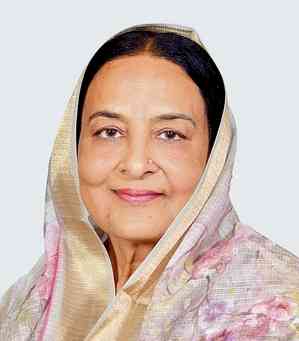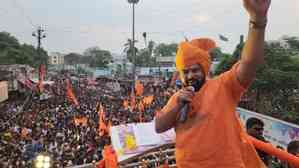DAY CELEBRATED: SPS Apollo Hospitals Observes World Epilepsy Day
Author(s): City Air NewsLudhiana, November 17,2012: SPS Apollo Institute of Neurosciences today observed the “World Epilepsy Day”. More than 100 patients participated in an interactive session with Dr. R.S. Bhatia, Senior Consultant, Department...


Ludhiana, November 17,2012: SPS Apollo Institute of Neurosciences today observed the “World Epilepsy Day”.
More than 100 patients participated in an interactive session with Dr. R.S. Bhatia, Senior Consultant, Department of Neurology, Dr. Siddhartha Garg, Senior Consultant, Department of Neurology, Dr. Deepinder Singh, Senior Consultant, Department of Neurosurgery, Dr. DP Singh, Consultant, Department of Neurosurgery and Dr.Gurpreet Kochar Associate Consultant, Department of Pediatric Neurology.
The hospital also distributed free information booklets and patient education material regarding epilepsy to the participants in the session. The doctors urged people to come forward and partner with the hospital to spread awareness regarding epilepsy. This forum emphasized on the useful tips like the need to carry identification and proper knowledge regarding seizure disorders so that people remain safe and receive proper treatment.
This initiative was taken in response to the low awareness levels about epilepsy. Epilepsy is one of the most common neurological disorders affecting any defined population and it is estimated that up to 5% of people in the world may have at least one seizure in their lives. Epilepsy can have profound social, physical and psychological consequences, according to Dr. RS Bhatia.
Speaking on the occasion, Dr. Siddhartha Garg said, approximately 65% of people newly diagnosed with epilepsy have no obvious cause. Epilepsy is often, but not always, the result of an underlying brain disease. Any type of brain disease can cause epilepsy. But not all people with the same brain disease will have epilepsy. In many people for whom the cause cannot be identified, it is called as idiopathic epilepsy. The older the patient, the more likely it is that the cause is an underlying brain disease such as a brain tumor or cerebrovascular disease (for instance a stroke), or is the result of head injury. Trauma and brain infection can cause epilepsy at any age.
According to Dr. Gurpreet Kochar, children and adolescents are more likely to have epilepsy of unknown or genetic origin. Febrile illness of any kind can trigger seizures in young children. About 3% of children who have febrile convulsions go on to develop epilepsy in later life.
Dr. Siddhartha Garg informed, it is estimated that up to 60-70% of newly diagnosed children and adults with epilepsy can be successfully treated with anti-epileptic drugs. The type of treatment prescribed will depend on several factors including the type of epilepsy, the frequency and severity of the seizures, age, overall health and medical history. He stressed that an accurate diagnosis of the type of epilepsy is critical in choosing the best treatment. After 2-3 years of successful treatment, drugs can be withdrawn in about 70% of children and 60% of adults without relapses. Up to 30% of people may not respond to drug therapy.

 cityairnews
cityairnews 

















